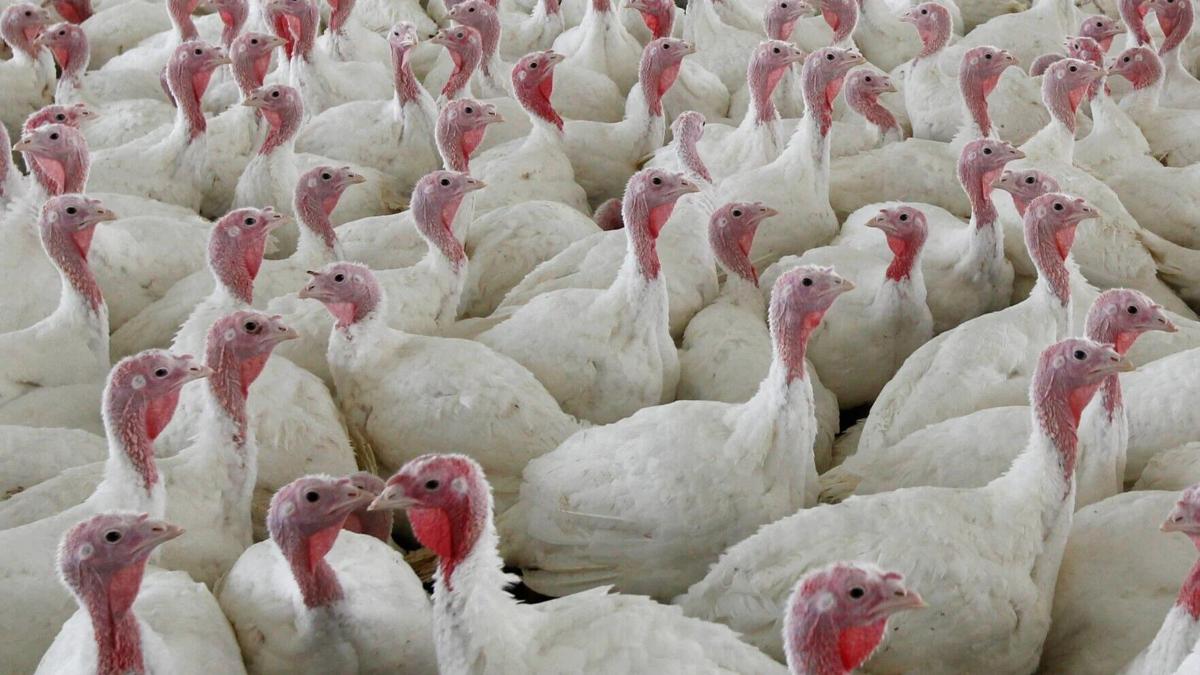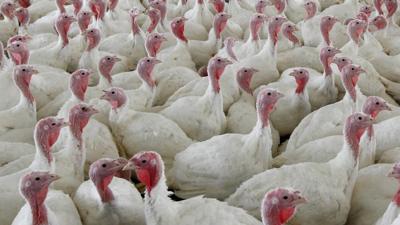JEFFERSON CITY┬ĀŌĆö A commission overseeing clean water laws in Missouri rejected requests Wednesday to toughen environmental rules for meat producers who residents say are skirting rules governing concentrated animal feeding operations.
The Missouri Clean Water Commission sided with farming groups instead, voting unanimously to reject the proposed changes, saying the rules should instead be addressed by the General Assembly.
ŌĆ£We donŌĆÖt want people to think weŌĆÖre not mindful of their concerns,ŌĆØ said commissioner Stan Coday of Seymour. ŌĆ£We simply just donŌĆÖt have much alternative but to leave the rules as they are.ŌĆØ
In asking the six-member panel for changes, the groups argued that companies producing beef and chicken are opening multiple feedlots in rural counties that fall just under a threshold governing large-scale factory farms, allowing them to have less-stringent manure management plans.
People are also reading…
Stephen Jeffery, an environmental attorney, told the commission that the companies are using a loophole in state law that could endanger water supplies.
ŌĆ£Currently, the scope of the existing CAFO regulations in Missouri provides an incentive to intentionally construct smaller Class IC facilities in order to avoid the regulatory requirements applicable to larger class facilities,ŌĆØ Jeffery wrote in his request for the rule change.
At issue is MissouriŌĆÖs approach to concentrated animal feeding operations, or CAFOs, which are industrial facilities capable of raising thousands of hogs, cows or chickens at a time.┬Ā
CAFOs are commonly bemoaned by rural neighbors who complain about the smell and worry that the massive amount of manure produced by the animals.
Jeffery is representing southwest Missouri residents who are concerned about eight farms being built near Pierce City and Verona. In all, the eight operators would contain over 2.5 million chickens in an area marked by topography that could allow waste to seep into groundwater supplies, Jeffery said.
Similar concerns are being raised about South Dakota-based AJ Beef, which residents say is enlisting local Amish farmers to construct multiple cattle feedlots in northwest Missouri that are not covered by the larger CAFO rules.
Like Jeffery, Livingston County resident Susan Fair asked the commission to strengthen water protections to ensure AJ Beef-related operations donŌĆÖt further impair the Thompson and Grand River watersheds with E. coli from agricultural runoff.
ŌĆ£AJ Beef is intentionally avoiding applying for MDNR permits by keeping the animal units under 1,000 for each facility,ŌĆØ she wrote in a request to Clean Water Commission Director John Hoke.
In central Missouri, Susan Williams, president of the Moniteau County Neighbors Alliance, also asked the commission to add provisions to state regulations that would limit feedlot permits being built within a mile of another facility.
ŌĆ£The basis for this new section is the realization that the greater the density of animal units per square mile in any given area will increase the amount of manure/litter that is produced,ŌĆØ Williams wrote.
The arguments opened a new front in the debate over regulations for factory farms in a state that has pushed to expand meat production.
┬Āupheld a state law prohibiting counties and health center board from enacting stricter regulations on CAFOs than the state.
That put the law governing manure disposal in the hands of the Clean Water Commission.
Heather Peters, water pollution control chief at the Missouri Department of Natural Resources, said most of the stateŌĆÖs 526 existing CAFOs are chicken and swine operations. All of the farms are designed to address the manure on the site of the operation.
ŌĆ£There is never a no risk of groundwater contamination. All of them are going to have at least some risk,ŌĆØ Peters said.
In testimony to the commission, Kimberly Prince of Pierce City said DNR should close the loophole that allows meat producers to avoid state oversight by spreading their operations across multiple nearby farms.
ŌĆ£Protecting our water is akin to protecting our health,ŌĆØ Prince said.
ŌĆ£This is a loophole that does not sufficiently protect the rural communities of Missouri,ŌĆØ said Maxine Gill, policy coordinator for Missouri Coalition for the Environment.
Farming groups lined up to tell the commission to ignore the requests, saying the proposed changes are an attempt to shut down factory farms.
Speaking on behalf of the Missouri CattlemenŌĆÖs Association, Jefferson City attorney Robert Brundage said the stateŌĆÖs existing CAFOŌĆÖs have operated safely for years.
ŌĆ£There is no emergency. We donŌĆÖt have groundwater being polluted in these karst areas,ŌĆØ Brundage said. ŌĆ£We want to protect groundwater. We do not condone any pollution.ŌĆØ
He said the commission lacks the authority to make the changes sought by residents.
Kayden Guyman, a regulatory specialist at the Missouri Farm Bureau, said current state law is working and should not be changed.
ŌĆ£We vigorously oppose any effort to apply more stringent regulations,ŌĆØ Guyman said. ŌĆ£These petitioners are simply trying to disrupt the livestock industry.ŌĆØ
Other opponents include the Missouri Soybean Association, which represents farmers who grow feed that supplies livestock operations.
Post-Dispatch photographers capture tens of thousands of images every year. See some of their best work that was either taken in June 2025 in this video. Edited by Jenna Jones.


















